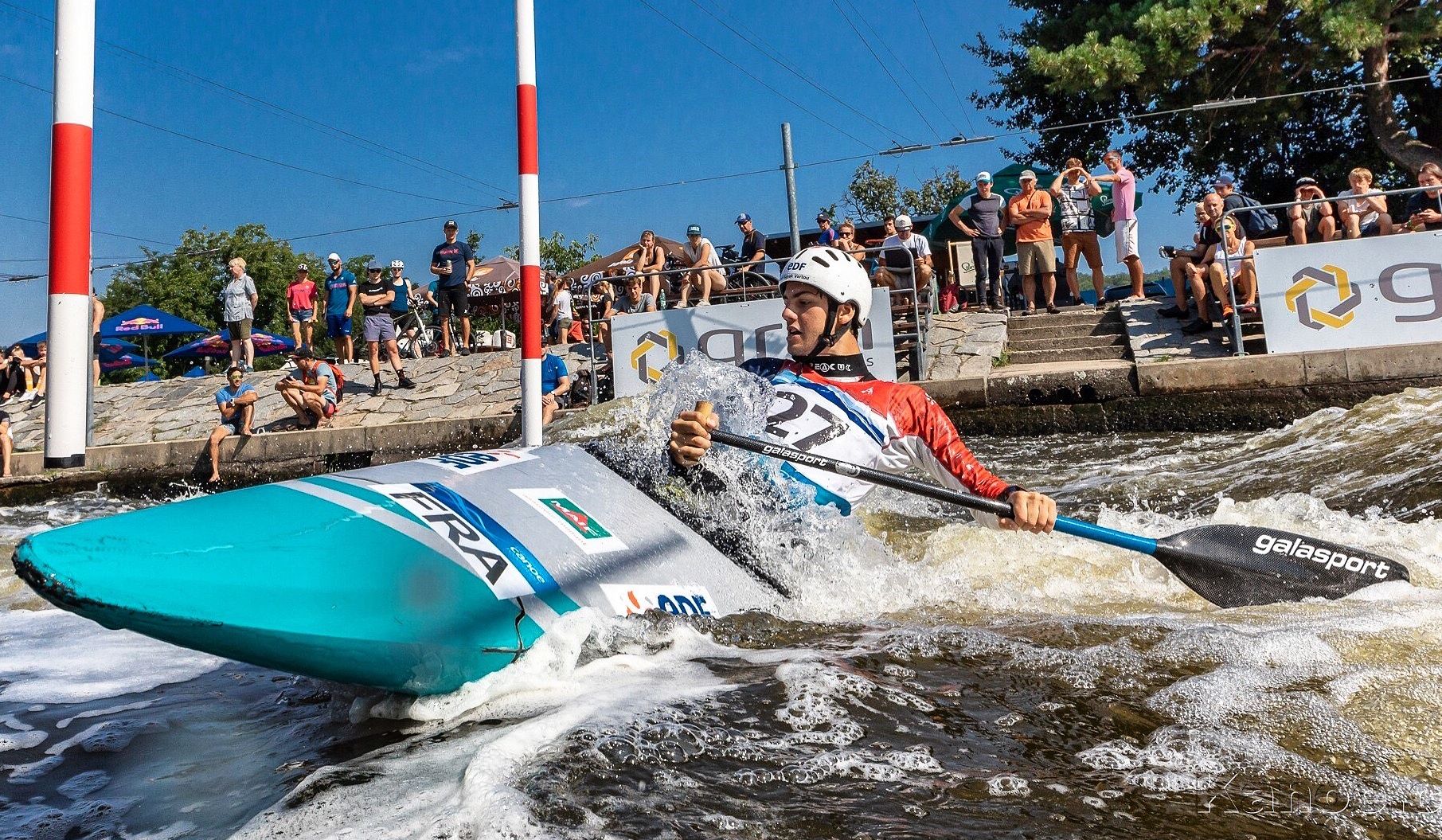Reconciling top-level studies with a sporting career is not always straightforward. Between academic demands and the intensity of training, student-athletes must remain disciplined at all times. With this in mind, ESCP Business School has made it a priority to support these exceptional individuals, offering them the flexibility and resources they need to excel on all fronts.
Through the experiences of students and graduates, this article explores the challenges of dual pursuits, the solutions put in place by ESCP, and how education provides a solid foundation for athletes to build a future beyond their sporting careers.
The Challenges of a Dual Pursuit: Striving for Excellence
It goes without saying that balancing demanding studies with a high-level sporting career is a true test of endurance. For high-performance student-athletes who are planning beyond the podium, juggling a packed schedule filled with lectures, intensive training sessions, and competitions is part of the game. As Alexis Bobon, ESCP Master in Management alumnus and former member of the French national canoe slalom team, points out: “Training conditions were quite intense, with two or three sessions a day that had to fit around my studies.” Constantly alternating between academics and sport can lead to significant physical and mental fatigue.

Thomas Assoignon, a first-year Master in Management student at ESCP and passionate hockey player, highlights the psychological pressure that comes with doing two things at the same time: “I’d say the hardest part is staying focused and performing well in both academics and sport, especially with accumulated fatigue and long days that often end late.”

Beyond the physical and intellectual demands, a dual pursuit also impacts the social lives of student-athletes. Alexandra Hervé, ESCP student and motorsport driver, shares her experience: “One of my biggest challenges in balancing sport and studies is finding time for myself and socialising with other students!”
These testimonies illustrate the complexity of a student-athlete’s journey, where time management and personal well-being are constantly put to the test.
To address these challenges, ESCP has implemented concrete and tailored solutions, ensuring its high-performance athletes receive the support they need to succeed not only in their athletic prime, but in preparing for their long-term professional future as well.
ESCP’s Support System
Recognising the challenges faced by its student-athletes, ESCP has implemented a range of measures to help them successfully balance their studies and sporting careers. Flexibility is a key priority, essential for those managing demanding schedules.
To this end, academic accommodations are offered, including adjustable timetables, the possibility of attending classes remotely, and exam deferrals. Thomas Assoignon highlights the importance of these adjustments: “When I have training or a competition at the same time as my classes, the lecturers are understanding and allow me to participate without being penalised for my absences.”
Finally, ESCP offers its student-athletes the opportunity to build a valuable network for their post-sport careers. The school facilitates connections with mentors, including former athletes and industry professionals, who can offer valuable advice and share their experiences. This networking aspect provides high-performance student-athletes with key insights into their future, whether in the sports industry or the corporate world.
Through these resources and this comprehensive support system, ESCP fosters an environment where student-athletes can thrive academically and athletically. Importantly, this tailored support empowers them to look beyond the short-term demands of elite sport and to invest in long-term, sustainable career paths.
Life After Sport: What Career Opportunities Await?
For some student-athletes, transitioning to a career in the sports world seems like an obvious path. However, others choose to leverage the skills they have acquired throughout their athletic journey to explore a variety of industries. Discipline, resilience, stress management, and leadership are qualities that athletes develop over the years, and these are highly valued in the corporate world. Alexis Bobon shares his experience: “This background is a real asset in the business world, as it has allowed me to further develop key qualities such as organisation, creative problem-solving, and continuous self-improvement, which are highly appreciated in companies.”

For those who decide to continue their careers in sport, numerous opportunities are available. Some become professional athletes, while others transition into coaching or sports management roles. Alexandra Hervé explains: “My dream is to make a living from motorsport, whether as a factory driver or by working in the industry, for example, in a commercial role.” The expertise gained through years of athletic practice equips graduates with the ability to manage teams, clubs, or sports organisations with a unique approach.
Other student-athletes, once their sporting careers come to an end, choose to orient their careers towards sectors that reflect the nature or values of their sport. Alexis Bobon highlights: “Probably influenced by my sport, which is closely linked to nature and energy, I have always wanted to pursue a career in the energy and renewable energy sector.”
These diverse career paths illustrate the wide range of opportunities available to student-athletes after their sporting careers end, showcasing how the skills they have developed can be successfully transferred into a variety of dynamic and inspiring industries. By combining their athletic experience with a business education, they aren’t just preparing a fall back solution, they are intentionally building a future.
The Final Word…
Pursuing both studies and sport at the same time, while demanding, becomes a real opportunity with the right support. ESCP stands out for its support model, offering its student-athletes the resources they need to excel both on the field and in their academic careers. But beyond immediate performance, it’s also about preparing for what comes next. The message to future student-athletes is clear: pursuing this dual path means investing in a future where your potential extends far beyond sport. That’s the true sign of victory.
